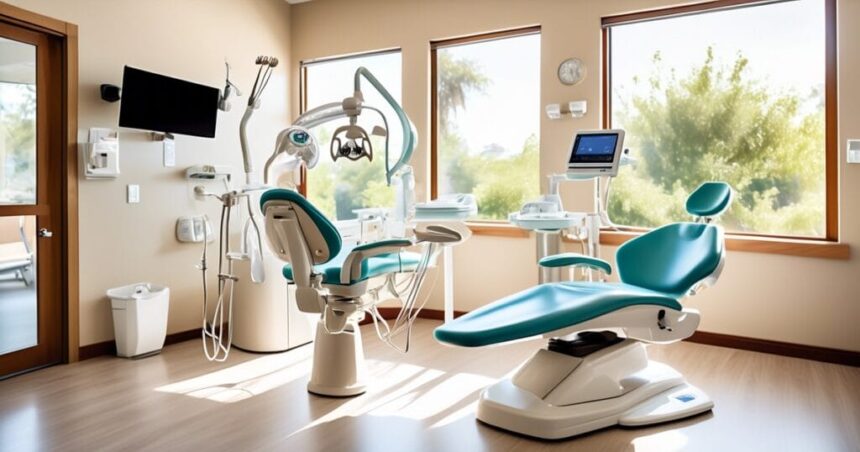How Long Does It Take to Sell a Dental Practice? | Expert Insights. Selling a dental practice can be an exciting yet daunting process. You may wonder, how long does it take to sell a dental practice? Well, the answer is not as straightforward as you might think. While some practices may sell quickly, others can linger on the market for months or even years. It all comes down to various factors such as location, market conditions, financial performance, buyer demand, practice type, and practice sale timeline.
We’ll discuss strategies to expedite the sale process and highlight potential challenges along the way. So if you’re considering selling your dental practice or simply curious about what goes into it, keep reading to gain valuable insights into this contrasting journey.
Key Takeaways
- Selling a dental practice can take several months to a year, depending on various factors such as market conditions and practice readiness.
- Before selling, assess the market readiness of your dental practice by evaluating its financial performance, patient base, and operational efficiency.
- Factors that can impact the sale of your dental practice include location, reputation, patient demographics, and the overall condition of the practice.
- Hiring a professional representative, such as a dental practice broker or consultant, can greatly assist in navigating the complex process of selling a dental practice.
- Enhancing the value of your dental practice can be achieved by improving its profitability, updating equipment and technology, and implementing effective marketing strategies.
- Implementing targeted marketing strategies, such as online advertising, direct mail campaigns, and networking with colleagues, can help attract potential buyers for your dental practice.
Understanding the Dental Practice Sale Timeline
Selling Timeframe
The time it takes to sell a dental practice can vary depending on several factors. It’s important to have realistic expectations about the practice sale timeline so that you can plan your transition effectively. By understanding the average duration of a dental practice sale, you can better prepare yourself for the process.
Factors Influencing Duration
Several factors can influence how long it takes to sell a dental practice. One of these factors is location. Practices located in high-demand areas may be sold more quickly compared to those in less desirable locations. Another factor is market conditions. If there are many buyers actively looking for practices, it may shorten the selling timeframe.
The size and profitability of the practice also play a role in determining how long it takes to sell. Larger practices with higher revenues tend to attract more potential buyers, which could lead to a faster sale. Aspects such as equipment condition and patient retention rates can impact how quickly a practice sells.
Sample Transition Timeline
While each dental practice sale is unique, having an idea of a sample transition timeline can provide some guidance on what to expect. The timeline typically includes steps such as valuation, marketing, negotiations, due diligence, and closing.
Valuation involves determining the value of your practice based on various factors like revenue and assets. Marketing entails promoting your practice through advertisements or engaging with brokers who specialize in dental practices sales. Negotiations involve discussing terms with potential buyers while due diligence allows them to thoroughly evaluate your practice before making an offer.
Closing refers to finalizing all legal and financial procedures necessary for transferring ownership from seller to buyer. It’s important to note that timelines may vary depending on individual circumstances.
Assessing Your Dental Practice’s Market Readiness
Market Readiness Assessment
Before selling a dental practice, it is crucial to conduct a market readiness assessment. This assessment helps determine if the market conditions are favorable for selling and if there is sufficient demand for dental practices in your area. By assessing the market readiness, you can gain insights into potential challenges or opportunities that may impact the sale of your practice.
Conducting a thorough market analysis involves examining factors such as demographics, competition, and economic trends. For example, you might want to consider the population growth in your area and whether there is an increasing demand for dental services. Researching other dental practices in your vicinity can help identify any oversaturation or gaps in the market.
Value Determination
Determining the value of your dental practice is essential when setting an appropriate asking price. Several factors contribute to assessing its overall worth:
- Revenue: The amount of income generated by your practice plays a significant role in determining its value.
- Profitability: Evaluating how profitable your practice has been over time provides valuable insights into its financial health.
- Patient base: A large and loyal patient base indicates stability and potential future revenue streams.
- Location: The attractiveness of your practice location influences its value.
- Equipment value: High-quality equipment adds value to your practice.
To accurately determine the value of your dental practice, it is advisable to consult with a professional appraiser or broker who specializes in healthcare practices. They have experience evaluating various aspects that affect valuation and can provide an objective assessment based on industry standards.
Key Factors Impacting the Sale of Your Dental Practice
Annual Gross Collections
The annual gross collections of a dental practice play a crucial role in determining its market value and potential selling timeframe. Buyers often consider the revenue generated by the practice as an indicator of its financial performance. A higher annual gross collection can positively impact both the speed at which your dental practice sells and the potential offers you receive. For instance, if your practice consistently generates substantial revenue, it may attract more interested buyers who are willing to pay a premium price.
Aesthetic Qualities and Equipment
The aesthetic qualities and overall condition of your dental practice, including its equipment, can significantly influence its marketability. Potential buyers are more likely to be attracted to practices that maintain a clean, modern appearance with up-to-date equipment. Investing in upgrading outdated equipment or improving the overall aesthetics of your office can enhance the value and desirability of your practice. By creating an appealing environment for patients and staff alike, you increase the chances of attracting more potential buyers.
Covenant Not to Compete
Including a covenant not to compete provision in the sale agreement is another factor that impacts the sale process. This provision protects buyers from facing competition from sellers within their geographic area after acquiring their dental practices. The covenant restricts sellers from opening new practices or working for competitors within a specified radius for a certain period following the sale. Many buyers prefer practices with non-compete agreements already in place as it provides them with peace of mind knowing they won’t face immediate competition from previous owners.
The Role of Professional Representation in Selling
Experienced Broker Representation
Working with an experienced broker can significantly impact the process of selling a dental practice. A broker brings valuable insights and expertise to the table, streamlining the entire selling process. They have extensive knowledge of the market and can provide guidance on setting a fair asking price for your practice. By leveraging their network, brokers can connect you with potential buyers who are actively seeking dental practices to purchase.
Negotiations can be complex and time-consuming, but having a broker by your side can make all the difference. They act as intermediaries between you and potential buyers, handling negotiations on your behalf while ensuring that your interests are protected. With their expertise in deal structuring, they help facilitate smooth transactions that benefit both parties involved.
Another advantage of working with a broker is their ability to expedite the selling timeframe. Their experience allows them to navigate any challenges or roadblocks that may arise during the process more efficiently. They understand what it takes to attract qualified buyers and ensure confidentiality throughout the transaction.
Transition Team’s Role
Building a transition team consisting of professionals such as attorneys, accountants, and consultants is crucial when selling a dental practice. Each team member plays a specific role in ensuring a successful transition from one owner to another.
Attorneys specializing in healthcare law assist with legal aspects such as drafting contracts and reviewing important documents related to the sale. Accountants handle financial matters including tax implications associated with selling your practice.
Consultants offer valuable advice regarding operational aspects like staffing transitions or implementing new systems under new ownership. Collaborating with this competent transition team helps streamline processes across different areas simultaneously while minimizing disruptions within your practice.
Enhancing Your Dental Practice’s Value
Increasing Value
There are several strategies you can employ to increase the value of your dental practice before selling. By improving operational efficiency, enhancing the patient experience, and implementing effective marketing initiatives, you can positively impact the overall value of your practice. For example, streamlining administrative processes and reducing overhead costs can make your practice more attractive to potential buyers. Investing in technology upgrades or expanding service offerings can also help attract buyers and command a higher selling price.
Hiring a Dental Associate
Hiring a dental associate before selling your practice can be beneficial for both parties involved. Bringing on an associate allows you as the seller to transition gradually while ensuring continuity of care for patients. This is particularly important because patients often have strong relationships with their dentists and may be hesitant about changes in ownership. Hiring a dental associate opens up opportunities for them to potentially become buyers themselves in the future, simplifying the selling process.
Transitioning Instead of Direct Selling
Transitioning your dental practice instead of directly selling it is another option worth considering. This involves bringing in a partner or associate who will eventually take over the practice completely. Transitioning provides several advantages such as allowing for a smoother handover period where you can gradually transfer responsibilities while still being involved in patient care if desired. This arrangement may provide financial benefits for the seller since they continue to receive income from their share of the business even after handing over control.
Marketing Strategies for a Successful Sale
Importance of Marketing
Implementing effective marketing strategies is crucial to attract potential buyers for your dental practice. By showcasing the unique features and strengths of your practice, you can generate interest and stand out in a competitive market. There are several ways to enhance your marketing efforts:
- Utilize online platforms: Listing your dental practice on reputable websites that cater specifically to the dental industry can increase its visibility to potential buyers. These platforms provide a targeted audience who are actively searching for dental practices for sale.
- Network within the dental community: Building connections with other dentists, specialists, and professionals in the field can help spread the word about your practice being up for sale. Attend local dental conferences or join professional organizations to expand your network.
- Leverage professional connections: Reach out to colleagues, mentors, or advisors who may have contacts interested in purchasing a dental practice. They could recommend potential buyers or assist with referrals.
Marketing Strategies Listing
In addition to these general marketing approaches, there are specific strategies you can employ when selling your dental practice:
- Utilize social media platforms: Create engaging content on social media channels such as Facebook, Instagram, and LinkedIn to reach a wider audience. Share updates about the sale process and highlight key aspects of your practice that make it an attractive investment opportunity.
- Email marketing campaigns: Develop email campaigns targeting individuals who may be interested in buying a dental practice. This could include fellow dentists looking to expand their operations or investors seeking opportunities in healthcare.
- Collaborate with a marketing professional: Consider working with an experienced marketing professional who specializes in helping sell dental practices. They will have insights into effective advertising techniques tailored specifically for this niche market.
Preparing for the Transition Phase
Transition Planning
Developing a comprehensive transition plan is essential when selling a dental practice. This plan should outline key milestones, timelines, and responsibilities to ensure a smooth transition. Collaborating with professionals experienced in dental practice transitions can help create an effective plan. They have the expertise to guide you through the process and ensure all necessary steps are taken.
A well-thought-out transition plan considers various factors such as financial arrangements, patient handover procedures, and legal requirements. It helps both the seller and potential buyers understand what to expect during the sale process. By having a clear roadmap in place, you can minimize disruptions to your practice operations while maximizing its value.
Appraisals and Showings Impact
Conducting professional appraisals of your dental practice is crucial when preparing for its sale. An accurate appraisal provides potential buyers with confidence in the value of your practice. It takes into account factors such as patient demographics, revenue streams, equipment condition, lease terms (if applicable), and goodwill.
Arranging showings of your dental practice also plays a significant role in attracting potential buyers. Well-organized showings allow interested parties to assess not only the physical space but also examine equipment and facilities firsthand. These visits influence their decision-making process by giving them insights into how their own vision aligns with what they see on-site.
Both appraisals and showings require careful planning and coordination with professionals who specialize in dental practice sales. Their expertise ensures that these activities are conducted efficiently while presenting your practice’s strengths effectively.
Overcoming Obstacles
Selling a dental practice may involve overcoming various obstacles along the way. Legal complexities related to contracts or leases can arise during negotiations between buyer and seller or when transferring ownership rights properly.
Finalizing the Sale and Ensuring a Smooth Handover
Sales Price Role
Setting an appropriate sales price is crucial. The sales price not only determines the financial outcome of the deal but also plays a significant role in attracting potential buyers. To set an appropriate sales price, several factors need to be considered. These include market conditions, the value of your practice, and buyer expectations.
Finding the right balance between profitability and fair market value is essential for achieving a successful sale. If you set the price too high, it may deter potential buyers or lead to prolonged negotiations that can delay completion of the deal. On the other hand, setting it too low might raise doubts about your practice’s value or give buyers an impression that something is wrong with it.
Contacting an ADS Broker
Navigating through all aspects of selling a dental practice can be overwhelming without proper guidance. This is where contacting an ADS broker specialized in dental practice sales becomes invaluable. These professionals have extensive experience in the dental industry and can provide valuable assistance throughout the entire selling process.
An ADS broker will help connect you with qualified buyers who are genuinely interested in acquiring your practice. They understand how to market your business effectively, streamline negotiations, handle paperwork efficiently, and ensure compliance with legal requirements.
By working closely with an ADS broker, you gain access to their expertise and network within the dental industry. This significantly increases your chances of finding suitable buyers quickly while ensuring a smooth transaction from start to finish.
Readiness Assessment for Selling
Before finalizing any sale agreement, conducting a readiness assessment is essential for both personal preparation and ensuring a successful handover process.
Summary
In conclusion, selling a dental practice is a complex process that requires careful planning and preparation. Understanding the dental practice sale timeline, assessing market readiness, considering key factors impacting the sale, and seeking professional representation are all crucial steps to ensure a successful sale. Enhancing the value of your dental practice through effective marketing strategies and preparing for the transition phase are also important considerations. Finally, finalizing the sale and ensuring a smooth handover are essential for a seamless transition.
To sell your dental practice successfully, it is important to take these steps seriously and seek guidance from professionals experienced in dental practice sales. By following these guidelines, you can maximize the value of your practice and achieve a successful sale. Remember, selling a dental practice is not just about finding a buyer but also about ensuring a smooth transition for both yourself and your patients. So, take the time to plan carefully, seek expert advice, and embark on this journey with confidence.
Frequently Asked Questions
How long does it typically take to sell a dental practice?
The timeline for selling a dental practice can vary depending on several factors, such as market conditions and the readiness of your practice. On average, it may take anywhere from six months to a year or even longer to complete the sale process.
What factors can impact the sale of my dental practice?
Several key factors can influence the sale of your dental practice, including its profitability, patient base, location, equipment and technology, lease terms, and overall reputation in the community. These aspects play a crucial role in attracting potential buyers and determining the value of your practice.
Should I consider professional representation when selling my dental practice?
Having professional representation during the sale process is highly recommended. A skilled broker or consultant specializing in dental practices brings expertise in valuation, negotiation skills, confidentiality maintenance, and marketing strategies that can maximize your chances of achieving a successful sale.
How can I enhance the value of my dental practice before putting it up for sale?
To increase the value of your dental practice before selling it, focus on improving profitability by optimizing operational efficiency and reducing expenses where possible. Enhancing patient satisfaction through excellent customer service and maintaining updated equipment are other ways to make your practice more attractive to potential buyers.
What marketing strategies should I employ for a successful sale?
Utilize various marketing channels strategically to reach potential buyers effectively. This includes creating an appealing listing with detailed information about your practice online platforms dedicated to buying/selling healthcare businesses. Networking within professional circles and leveraging word-of-mouth recommendations can also help find interested parties quickly.





